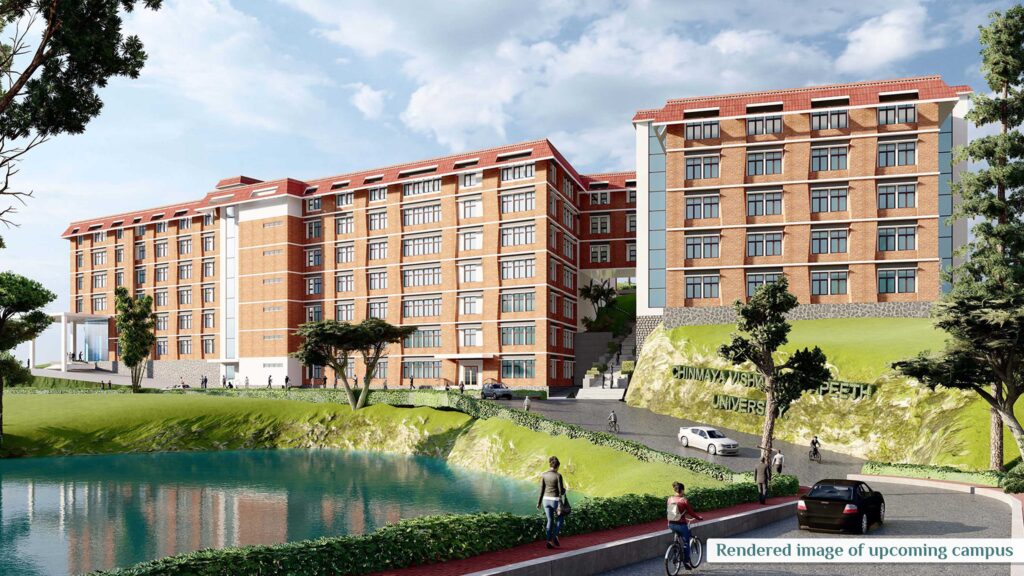
Chinmaya Vishwavidyapeeth
Chinmaya Vishwavidyapeeth (CVV) was conceptualized in 2016, the birth centenary year of the inspirational visionary and founder of Chinmaya Mission, renowned Vedantic master and teacher par excellence, Swami Chinmayananda. On 16 January 2017, CVV was notified as a Deemed-to-be-University under the ‘de novo’ category.
CVV has been established as a torchbearer for the preservation of Indian cultural heritage and its knowledge traditions, through higher education. Founded on the principles of Spirituality, Purity, Practicality and Innovation, CVV’s core mission is to blend the ancient and time-tested wisdom of India with present-day knowledge fields. It is breaking new grounds where necessary and adopting the merits of all that has come before but always leaning towards the winds of innovation. Striking a careful balance between the old and the new, the University offers common streams of programmes with unique electives and supplementary subjects with an intent to mould the youngsters of today into well rounded, responsible, value grounded young adults who contribute to the nation, and the world at large.
The Chinmaya Vishwavidyapeeth functions from two campuses: the headquarters referred to as the Chinmaya Eswar Gurukula campus in Kochi, Kerala, and the Chinmaya Naada Bindu Gurukula campus in Kolwan, near Pune.
Central Chinmaya Mission Trust Education Cell
Central Chinmaya Mission Trust Education Cell (CCMTEC) is the governing body of the Chinmaya Education Movement, and is headquartered at Chinmaya Gardens in Coimbatore, India. It is the apex body formulating policies for Chinmaya Vidyalayas across the country and world, apart from developing resource materials on Chinmaya Vision Programme (CVP) including the CVP Manual, SWAD (School With A Difference), Chinmaya Drishti – a biannual newsletter which shares the best practices of the Chinmaya Educational Institutions (CEIs), Garden of Life, and In Indian Culture — Why do we.
In 50 years, over a million students have graduated from the Chinmaya Education Institutions. Presently, more than 1,00,000 students are studying in them. They are guided by a dedicated team of over 6,000 faculties and are ably supported by about 1,000 administrative staff. Every year, more than 20,000 children join the institutions and about the same number pass out as young men and women of high character and integrity. This vast network of the Chinmaya Educational Movement thus, significantly nourishes the global Chinmaya Family and the society at large.
